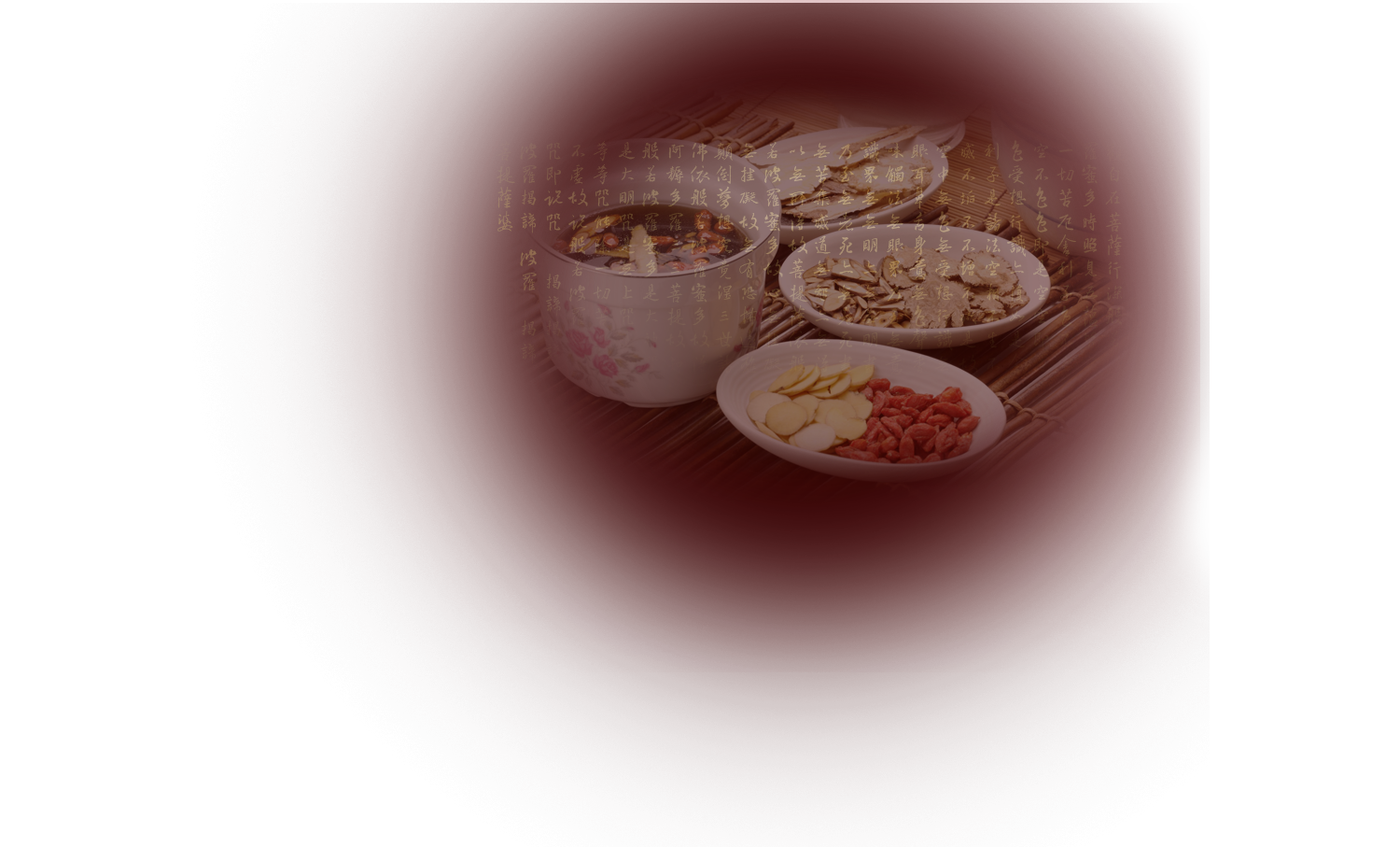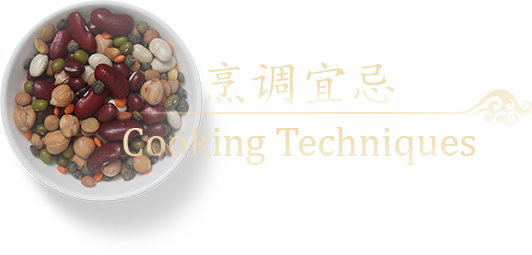

TCM Diets adhere to specific protocols with regard to combining foods or cooking methods. There are combinations that are referred to as, “forbidden” which include Herb to Herb combinations, Food to Herb combinations, Food to Food combinations and lastly Food to Disease combinations. Without the appropriate medical knowledge one may inevitably go astray. Due to the fact that therapeutic diets differ from the regular diet, while taking therapeutic diets, attention must be paid to the characteristic and taste of the herbs, specific dietary taboos, choice of foodstuffs/herbs and processing, and cooking techniques, etc.
- Fine cooking: Excellent herbal diets must emphasize cooking techniques. Edible herbs and herbs without noxious odors can be cooked together with food. If there are too many herbs or an obvious distasteful odor, herbs can be wrapped with gauze and cooked together with food. The medicinal properties will still enter the food or soup, but the herbal residue may be removed when the food is served. Herbs may be cooked separately and the decoction may be added to foods during the cooking process, leaving the residue behind but still reducing the loss of nutrients and the destruction of the active ingredients.
- Appropriate Dosage: Herbal diets require very specific dosages. Eating appropriately is a key principle of Chinese medicine health care. The appropriate restraint is also applied to herbal diets. In a short period of time, one should not eat excessively or be anxious to achieve the goal. Based on the individual’s situation, small portions of food eaten frequently and persistently increases the effect of the herbal diet. It is worth noting that, although herbal diets have tremendous benefits, the targeting and therapeutic effect is nowhere near that of pharmaceutical drug intervention. It is only when combined, that the two methods complement each other to achieve overall better therapeutic results.
- Incompatibility: There is a rich history of clinical practical experience in using Therapeutic diets. In the treatment of certain diseases, certain foods are considered inappropriate or even forbidden. Certain foods and herbs cannot be used in conjunction with one another in order to avoid unexpected or adverse reaction. For example, people who are considered hot in nature should avoid the intake of pork, beef and pumpkin. Patients with mouth ulcers should not eat fried or baked food. Watermelon and lamb are not recommended to be eaten together. Freshwater fish cannot be combined with licorice. Bananas and sweet potatoes should not be eaten together. Tofu must not be mixed with honey. Plums and duck cannot be cooked together. Eggs cannot be combined with artificial sweeteners.
- Correspondence Between Man and Nature: In TCM theory, the body is considered to have correspondence with nature. Therefore, treating disease and using therapeutic diets requires an emphasis on timing. This can be referred to as the Five Elements of Tonification in Four Seasons. The spring governs recovery and renewal. This season is most appropriate to nourish the Liver. Summer is divided into early summer and late summer. In the early summer, the weather is hot; therefore, this is the best season to nourish the Heart. Late summer is the most appropriate time to nourish the Spleen. The coolness of the fall season is the most appropriate time to nourish the Lungs. Lastly, the coldness of winter is the most appropriate time for warm nourishment of the kidney. Violating the laws of nature will have a negative impact on the effects of tonification.
